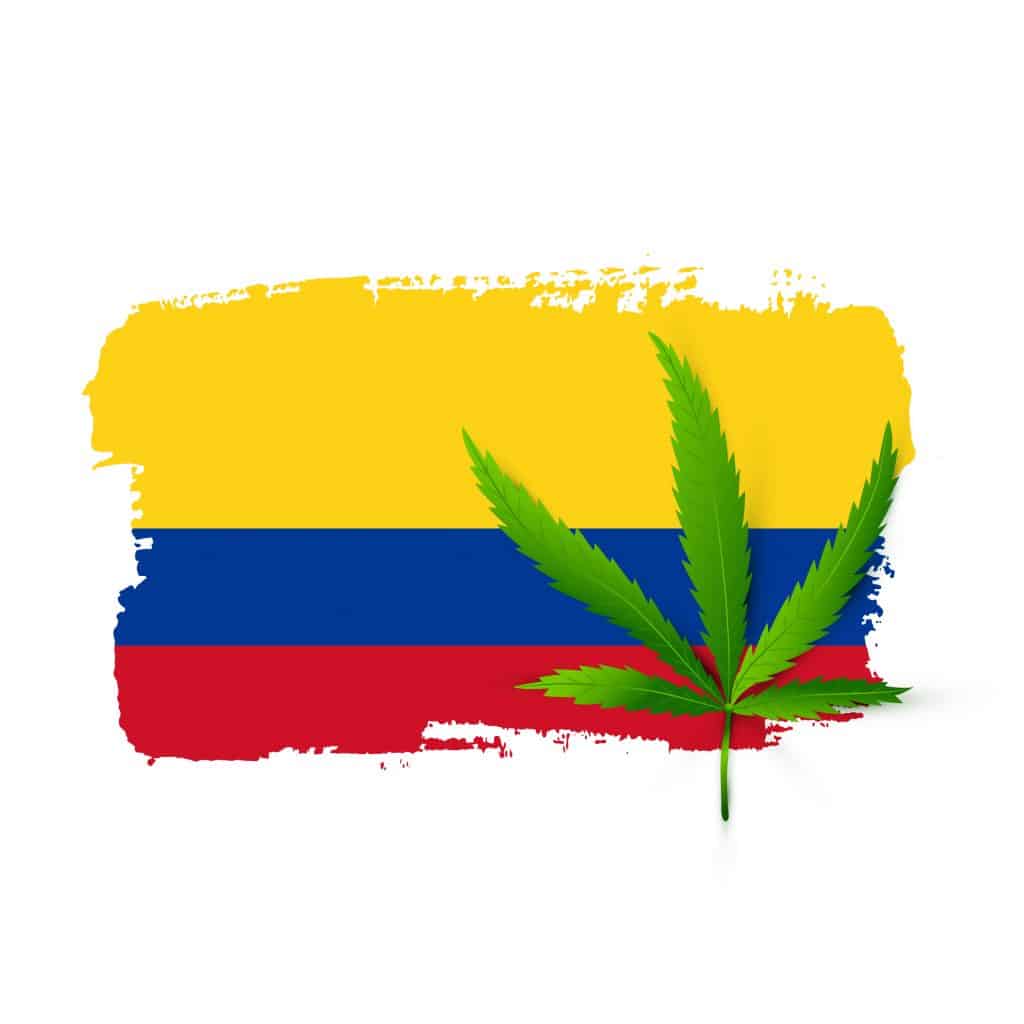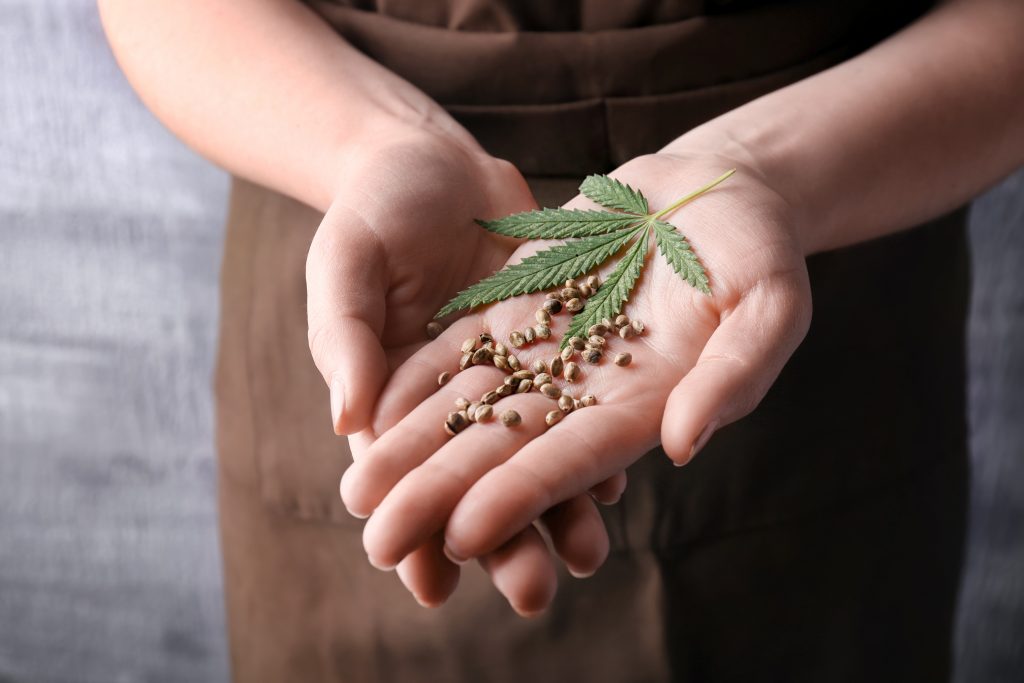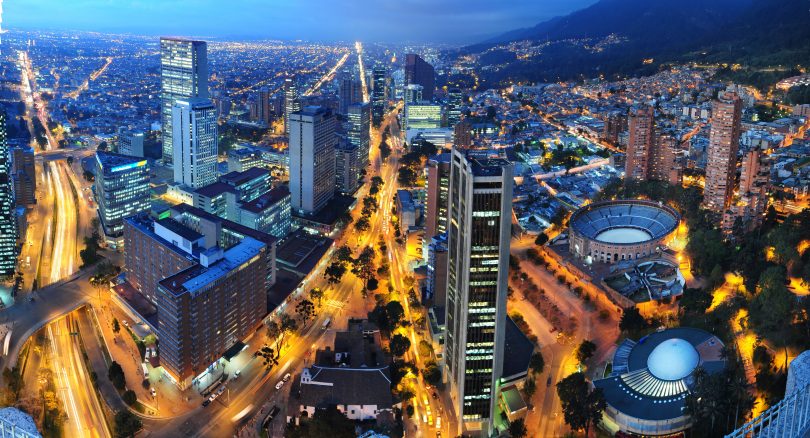Colombia is a country that’s been at the forefront of drug markets for quite some time, with a government ready, willing, and able to make updates to laws as needed. In its newest turn, Colombia is building its international cannabis export market, and creating new legislation to bring in more revenue.
In today’s world of cannabis, you can choose the THC you like the most. There’s delta-9 which is the standard THC. And then there’s delta-8 THC, a newer version which causes less psychoactive reaction, and less overall anxiety. Which THC is better? Check out our sweet Delta-8 THC deals and figure out which one works best for you.
Cannabis and Colombia
Colombia has been one of the more lax countries when it comes to cannabis use, partly because the country has had so many drug issues and drug violence, that it has made laws specifically to try to combat these issues. One of them was to decriminalize most drugs in 1994. This decriminalization wasn’t as precise as it should have been, and in 2012, a specification was made to clarify just how much a person could have for personal use and/or possession without being arrested. The amount was set at 20 grams or less to avoid prosecution. This was still only intended for private use, and did not decriminalize public use.
Things got a little sticky in 2018, when then president Ivan Duque signed a decree giving law enforcement the ability to confiscate personal use quantities if caught. The decree did not break with decriminalization in that it didn’t threaten criminal sanctions, but it did instate a fine of up to 208,000 pesos. The following year (2019) the Constitutional Court ruled that parts of the decree were unconstitutional and abolished punishments for up to 20 grams, while still allowing law enforcement to confiscate contraband.
Sale, supply, and trafficking crimes are all predictably illegal. Having more than 20 grams can be considered possession with an intent to sell. The maximum prison sentence is 20 years, which is a stricter penalty in the country than for rape. Being caught trafficking can land a person in prison for up to 30 years.

Medical cannabis in Colombia
In 2015, Colombian president Juan Miguel Santos signed a law to legalize medical marijuana, and in 2016 Colombia’s congress passed law 1787 to establish a regulatory framework for a market, which was approved in 2017 with Decree 613. As part of the regulated system, those looking to gain authorizations to take part in the market must obtain the proper licenses, of which there are four.
- 1) A license for the manufacture of cannabis derivatives for producing cannabis-derived products, domestic scientific research, and exportation.
- 2) A license for the use of cannabis seeds which allows the sale, distribution, and research of the seeds.
- 3) A license for the cultivation of psychoactive cannabis which allows the cultivation, production of derivatives, storage, disposal, production of seeds, and research into the plant.
- 4) A license for the cultivation of non-psychoactive cannabis which is for producing cannabis seeds for planting, industrial uses, manufacturing derivatives, storage, disposal, and research.
Interested parties should check the links for further information on requirements for licenses, and general pricing. According to Prohibition Partners, by the end of 2020, Colombia had handed out nearly 700 licenses for both low and high THC production, as well as seed production. Prohibition Partners went further into data from 2020, saying about 70% of cannabis operations in Colombia are owned by foreign companies, mainly from Europe and North America (Canada and the US).
This goes in line with nearly every country that has opened an international cannabis market, by accepting foreign investments over empowering local businesses. Morocco stands as one of only a few countries to create legislation requiring licenses to go to Moroccans only.
Commercial sales internationally
Having a local domestic market, and joining the global medical cannabis industry, are two different things. In the past year, several companies in Colombia (or companies operating out of Colombian facilities) have begun selling products in the international cannabis market.
Khiron Life Sciences was the first company to export high THC products out of Colombia in early December 2020. The exports went to Peru where prescriptions were filled through Farmacia Universal S.A.C. as part of the deal with Khiron. It is the only Colombian company authorized to export such materials, and the only Colombian company with authorization to fill commercial prescriptions in Peru for high THC products. Doctors in Peru have to acquire a medical cannabis diploma via Khiron in order to participate, which over 100 have so far. Khiron met all import, export and distribution requirements to make this happen according to the Colombian government.

Avicanna is a Canadian-based biopharmaceutical company specializing in cannabinoids. Last July, the company exported 100,000 hemp seeds to Colorado from Colombia via a local subsidiary, Santa Marta Golden Hemp, which met all the requirements for exportation. This was the first hemp seed export made out of Colombia.
The first commercial sale for cannabis oil was made out of Colombia last month when Ikänik Farms Inc. made its first sale of THC oil to Mexico. It is the company’s goal to present cannabinoid solutions particular to patient needs (formula magistral) in Latin America. They intend to target illnesses like insomnia, cancer, and epilepsy. The president of Ikänik Farms, International – Borja Sanz de Madrid – had this to say about the event:
“We are excited to participate in this groundbreaking moment for the cannabis industry and the countries of Mexico and Colombia, as the first Colombian company to export psychoactive cannabis oil to Mexico… We would like to thank both governments for their roles, ensuring this collaborative effort remained a top priority.”
Clever Leaves is another interesting story. The US-based multinational company making pharmaceutical grade cannabinoids, announced a couple days ago that the Colombian government (through the Colombian Technical Quotas Group) gave Clever Leaves’ Colombian facility authorization to manufacture just under 60,000 kilos of cannabis into dried flower derivatives. This, according to the International Narcotics Control Board (an independent body that monitors substances as per the three UN scheduling treaties), comprises 50% of Colombia’s quota for the year, and 18% of the global allowable medical cannabis production for 2021.
In July of 2020, the Clever Leaves facility in Colombia won an EU GMP certification, making it the only Latin American country to gain this certification. The authorization allows Clever Leaves to import medicinal cannabis products to the EU, as well as the ability to produce ‘active pharmaceutical Ingredients’ (APIs), finished, and semi-finished products for distribution in Europe. The Clever Leaves Colombian facility, besides its EU GMP certification, also has a GMP certification from the Colombia National Food and Drug Surveillance Institute, and a GACP – Good Agricultural and Collecting Practices Certification. The company was also granted a provisional license from Infarmed in Portugal.
Last month, Clever Leaves gained approvals to legally ship cannabis to Canada from Colombia for the first time. The cannabis was authorized to be shipped for research purposes only, and required six authorizations to happen. The cannabis shipment was approved for lab testing and analyzation, with the move showing that Colombia stands behind the quality of its products. This is the first time Colombia made such an authorization for its products.

Growing the industry
Colombia very clearly wants to grow its cannabis market and has introduced measures and new legislation to widen the market and speed it up. In an effort to help pave the way, the Colombian government made the announcement that several companies including Clever Leaves, are now considered a Project of Strategic National Interest, or PINE. Having the PINE designation shows the government’s support, as well as a recognition of the company’s contributions economically to the country. A PINE designation also comes with the ability to simplify certain administrative processes, and to get through them quicker.
Not only that, this past February, Colombian parliament put forth a bill that would enable the exportation of cannabis flowers to be sold in international markets. Right now, oils and other products can be exported internationally from Colombia, but not actual buds. As of last October, Colombia’s exported cannabis amounted to $5 million in sales, a rather small number, with most of it being CBD products shipped to the US. The inclusion of dried flowers is noted as a way to bring up revenue, and the government agency responsible for fair business practices in Colombia – the Superintendency of Industry and Commerce – recently sent a letter to the Ministry of Health to recommend an update in legislation to make this happen.
According to Prohibition Partners, the Colombian Ministry of Health and Social Protection published a new draft law which is related to Decree 613 and Law 1787, both passed in 2017. The new bill would allow companies in Colombia to export dry flowers internationally in the global cannabis market.
Conclusion
Besides trying out this new bill for the exportation of dry flowers, Colombia has also recently visited the ideas of both legalizing a recreational market for cannabis, as well as legalizing cocaine. For now however, Colombia will continue working to expand its growing medicinal cannabis market. One thing for sure is, when it comes to drugs, Colombia always finds a way to be on top.
Hello and welcome to CBDtesters.co, the #1 spot for all cannabis-related news and information. Join us regularly to keep up with the fast-paced world of legal cannabis, and sign up for our newsletter so you never miss a thing!
Resources
America Is Cannabis Friendly – It’s Official
Cannabis Election Results – What Just Became Legal in the United States
Uruguay Was The First Country to Legalize Cannabis – How Are They Doing Now?
South Africa Introduces Some of the Most Lax Laws on Cannabis Yet
What is DELTA 8 THC (FAQ: Great resource to learn about DELTA 8THC)
Argentina Allows Cannabis Self-Cultivation
Cannabis Is Illegal in Zambia, but Exporting It Is Totally Fine!
The CBD Flowers Weekly newsletter (your top resource for all things smokable hemp flowers). How to choose Delta-8 THC flowers? Mexico Delayed Cannabis Bill Again
The Medical Cannabis Weekly newsletter (International medical cannabis business report)
Morocco to Shake Things Up With Legalized Medical Cannabis
The Delta 8 Weekly Newsletter (All you need to know about Delta 8 thc) and the Best Delta 8 THC Deals. Best Delta-8 THC Vape Bundles – Winter 2021 Paraguay Grows it, Brazil Takes it… Will New Cannabis Laws Change Anything?
Tilray Continues Expansion Into Europe And Beyond Sinaloa Cartel Might Run Mexico’s New Cannabis Industry Mama Cultiva & the Fight for Cannabis Legalization
Luxembourg Likely to Be First EU Country to Legalize Recreational Cannabis
Recreational Cannabis in Colombia – Coming Soon? New Bill: Colombia Will Legalize Cocaine? Cannabis Remains Schedule I After UN Vote







